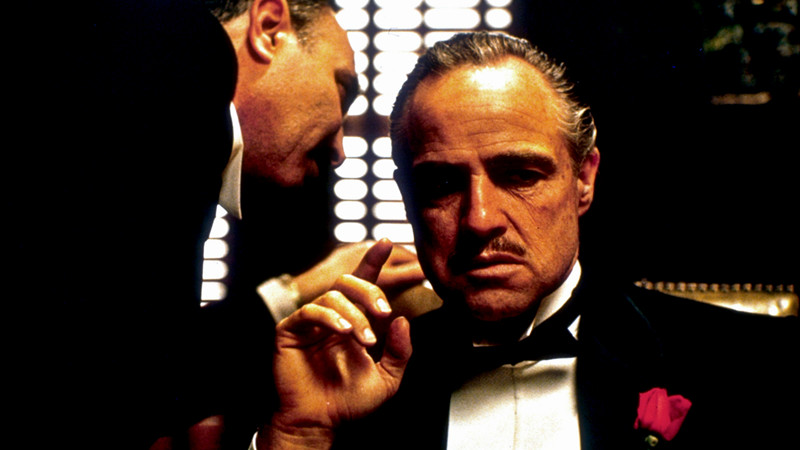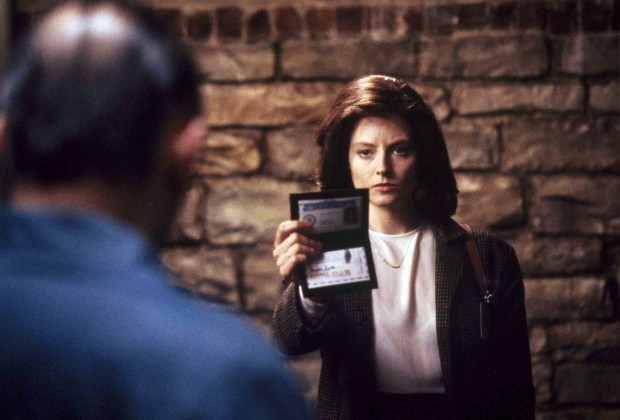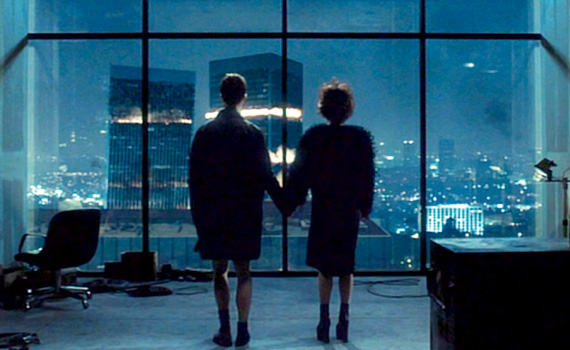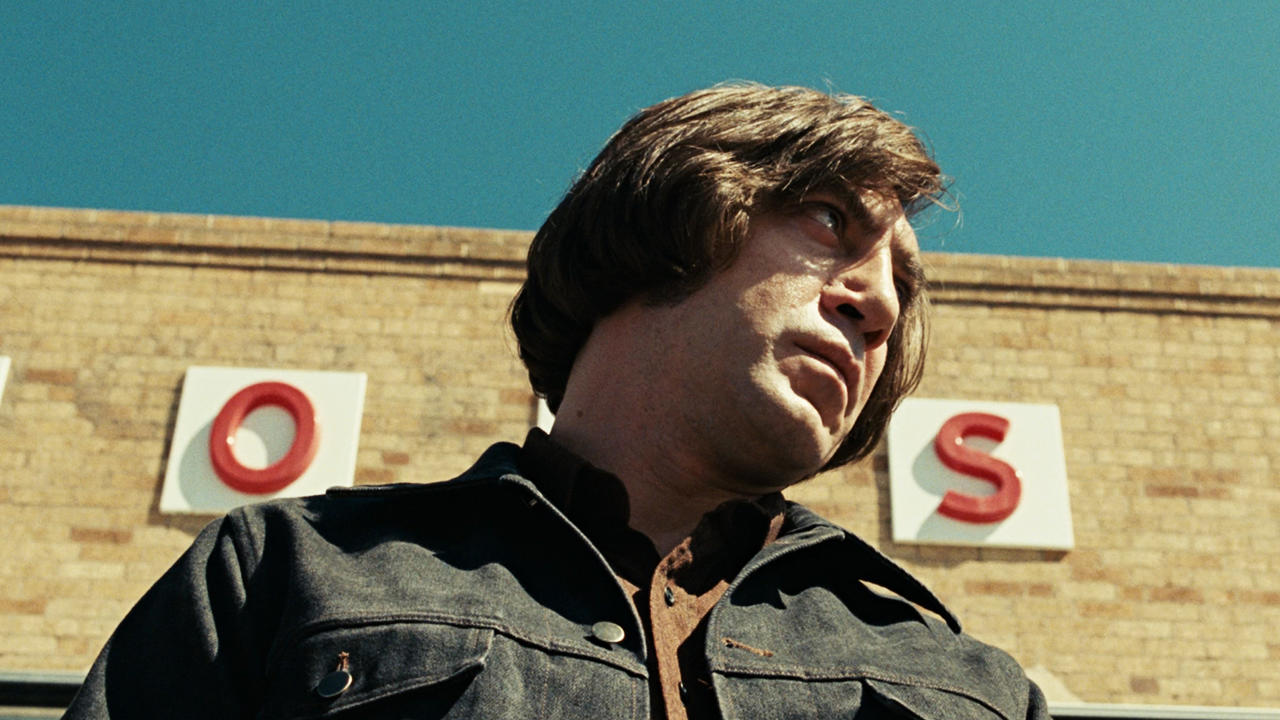5. The Godfather 1972 (Novel 1969)

Heralded by many as one of the best films of all time, it is understandable why the cinematic adaptation receives more praise than the book. The novel was written by Mario Puzo in an effort to create a compelling and ‘commercial’ story. His work was hugely successful and introduced Italian criminal terminology to English speaking audiences such as consigliere.
The film succeeds particularly with the choice of character focus. Some secondary characters such as Captain McCluskey, receive no back story as to how he became corrupt.
This has no diminishing effect on the film, as characters such as Kay are given far more fleshed out roles. Kay is naive and blindly obedient in the novel, whereas Diane Keaton’s portrayal is suspicious and gradually contributes to Michael’s alienation. The film is a true staple of iconic cinema and made the right choices regarding script and casting. Mario Puzo was also a collaborator with Francis Ford Coppola, honouring the tone of the book.
4. The Silence of the Lambs 1991 (Novel 1988)

Not as clear cut, The Silence of the Lambs was a huge success both on paper and screen. Anthony Hopkins produced one of the finest character performances in film history back in 1991, with less than 20 minutes of screen time. This performance alone is perhaps the main reason for the film adaptation surpassing the popularity of the literary source.
Any fan of the Clarice Starling character simply must read the book as her character is allowed to confront issues with inner peace and overcome personal strife that is absent from the film. As a novel, it is masterfully suspenseful and is effortlessly readable. Nevertheless, the overall execution of the film is lean and efficient giving stellar performances and an overall better final product.
3. Fight Club 1999 (Novel 1996)

Fight Club was massively controversial in both formats. The tales of anarchy and sociopathic human analysis are similar in both, but have some very key differences, such as the ending. Chuck Palahniuk, the author of the book as openly admitted to preferring David Fincher’s film and has even gone as far to say he is “kind of embarrassed by the book”. His hyperbolic writing style was sharp and raw in Fight Club, but isn’t quite as well oiled as in some of later works such as Lullaby 2002.
The creation of Tyler Durden is far more politically driven in Fincher’s film and doesn’t actually take any human life. Tyler is a psychopath in the book and takes numerous lives which somewhat overshadows his greater intentions. The credit card debt plot is absent from the book, with Palahniuk’s plot featuring a building crashing down onto a museum in an act of martyrdom.
The film succeeds largely due to the gradual exposition points throughout that are far more effective as visual techniques as opposed to literary. The critique of consumerism is far clearer in the film and offers slightly more thought provocation than the grisly book. Fight Club is a good read and a great watch.
2. No Country for Old Men 2007 (Novel 2005)

Joel and Ethan Coen’s universally acclaimed film, that arrived in one best years for mainstream cinema, was so widely praised that some viewers are unaware that it was originally a book. The novel, which received mixed reviews, is largely overshadowed by the film. Cormac McCarthy’s novel was mainly criticised when compared with his earlier works.
The film delivers the same story, but waters down the themes slightly to make way for the characters, allowing them to shine. Javier Bardem’s bone chilling performance as Anton Chigurh was excellent and deservedly garnered much praise. The cinematic adaptation leaves a more nihilistic aftertaste than the book.
The story focuses solely on these drastically different characters, all of whom are attempting to avoid extinction. The suspense and visual language are relentlessly gripping in the Coen brothers’ outing and it is simply due to the film’s brilliance that the book is rendered second.
1. Jaws 1975 (Novel 1974)

Perhaps Steven Spielberg’s box office sensation is a predictable conclusion to this list, but the 1975 blockbuster is undeniably better than the book. Peter Benchley’s first novel was a huge hit, climbing the bestseller list during the summer of 1974 and launching his career as an author. The novel has sold 20 million copies worldwide and is praised for its depictions of the shark, but that’s about it.
The book features oddly placed sexual references and story lines amidst some of the most unlikeable characters you will ever read about. Sheriff Brody is aggressive and socially impotent, Hooper is arrogant and Ellen Brody is infuriatingly annoying.
The best parts of the book are the shark attacks which become few and far between as the pages turn. The background to Amity’s financial devastation is given more detail and is a welcome expansion, but the two most iconic scenes in the film are absent in the book. Ben Gardner’s ghoulish face popping out of the hole in his boat doesn’t take place and the awesome ‘smile you son of a bitch’ ending is also different in the novel.
Reading the book will simply allow the reader to appreciate Spielberg’s Jaws all the more. Spielberg’s choices regarding the story (the shark not working on set was a blessing in disguise) are more effective across the board. Brody, Hooper and Quint are iconic in the film and forgettable in the book. Perhaps most noticeable, is the absence of John Williams’ semitone masterpiece, that terrified swimmers the world over.
Author Bio: Rob is a 24 year old Musician from Hampshire, who is currently pursuing fiction writing. Rob has aspirations of becoming an author and screenwriter.